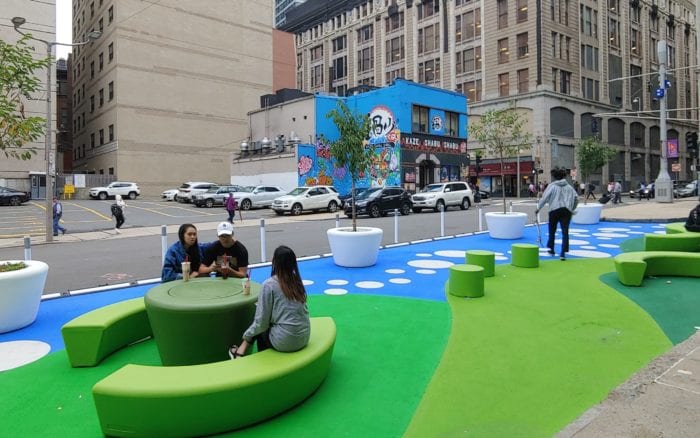
State legislators have the opportunity to push through two environmental justice bills that emphasize citizens’ constitutional right to clean air and water and encourage stronger enforcement of existing state laws.
Your zip code should not determine the quality of your health. Whether you live on Beacon Hill or in Chinatown, it should not be a privilege to breathe clean air. But that’s not the case for many Massachusetts residents who need an inhaler to ease asthma symptoms because of the poor air quality. We live in an asthma hot zone that’s getting crueler every year.
Long before the COVID-19 pandemic weaponized the air we breathe, it was clear that local air pollution was a slow motion crisis for residents of Boston’s Chinatown. Situated at the nexus of the Mass Pike and I-93, Chinatown is uniquely burdened by the vehicular emissions of the cars, trucks, and buses that traverse this major transportation corridor.
Analysis from the Cambridge-based Union of Concerned Scientists found in 2019 that Chinatown has the worst air quality in Massachusetts. The Asthma and Allergy Foundation of America ranked Boston 8th on its list of “Asthma Capitals”, while Springfield was ranked 1st. The dismal rankings are based on asthma prevalence, emergency department visits due to asthma, and asthma-related fatalities.
While Chinatown’s disastrous air quality is exceptional, cities and towns across the State are struggling with the health impacts of air pollution. PM2.5, the fine particulate matter found in tailpipe emissions, is the biggest environmental risk factor for premature death globally. Chronic exposure to elevated levels of PM2.5 is linked to lung cancer, cardiovascular disease, and the development of asthma, among other negative health impacts. The damaging effects of air pollution can even take hold before birth. Research has shown that maternal exposure to air pollutants can lead to low birth weight and premature births, which are risk factors for short and long-term health problems in infants. In Massachusetts, the health costs attributed to vehicular pollution were estimated at nearly $2 billion in 2015.
Despite the ample evidence of harm caused by air pollution, the Trump administration announced the rollback of tailpipe emissions standards in March, effectively allowing vehicles to emit nearly 1 billion tons of CO2 over the lifetime of the vehicles. The Administration also suspended monitoring and enforcement of the Clean Air Act at the end of March, enabling power plants, factories, and other polluters to follow federal pollution standards at their discretion.
A Harvard School of Public Health study released in April found that even small increases in long-term exposure to air pollution dramatically increase the risk of dying from the current COVID-19 health crisis. These findings help to explain the alarmingly high mortality rates from COVID-19 in communities of color, which have historically suffered from worse air quality than white neighborhoods. The same families who were devastated by asthma and other respiratory illnesses exacerbated by air pollution are now fighting against — and dying from — COVID-19. As we mourn those we’ve lost, fighting for cleaner air for all is a crucial way to honor their lives.
The Green Justice Coalition, of which Youth on Board and the Chinese Progressive Association are members, is calling for environmental justice reforms to reduce the incidence of asthma, especially in hard-hit communities of color like Chinatown and Chelsea. On May 5, we recognized World Asthma Day, which gave us an opportunity to consider practical interventions to improve the health and well-being of our communities by promoting cleaner air. Real solutions include transportation policies that encourage vehicle electrification, bold investments in clean and green public transit, and stronger support for renewable energy projects, such as community-operated microgrids.
Our state legislators have the opportunity to push through two environmental justice bills (H.761/S.464 and H.826/S.453) that emphasize citizens’ constitutional right to clean air and water and encourage stronger enforcement of existing state laws. The legislation would require the State to cap the expansion or siting of new industrial facilities within environmental justice communities, which have faced disproportionate environmental burdens. This would lower residents’ exposure to toxic air pollution and other harmful environmental contaminants from vehicles, power plants, and other industrial facilities.
Physicians and other health professionals, environmental advocates, and youth leaders are joining the fight for clean air and clean lungs. Together, we can end Massachusetts’ dismal ranking as an asthma hot zone and one of the worst places to breathe. We can, and must, do better.
Climate Organizer @BSACBuzz. Board @YA_YANetwork. Fellow
@LocalPathways. Alum @Dartmouth. Building people power for transformative change. He.

